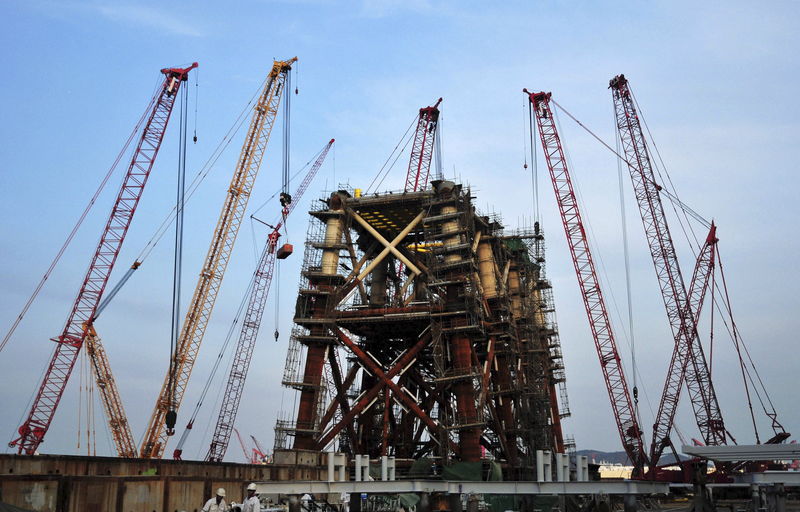TSX lower as gold rally takes a breather
Investing.com-- Oil prices rose Wednesday after Iran suspended cooperation with the U.N. nuclear watchdog, lifting geopolitical tensions in the region.
At 07:50 ET (11:50 GMT), Brent oil futures for September rose 1.2% to $67.94 a barrel, and West Texas Intermediate crude futures gained 1.3% to $66.30 a barrel.
Iran suspends cooperation with UN
Iran put into effect a law on Wednesday that stipulates that any future inspection of its nuclear sites by the International Atomic Energy Agency needs approval by Tehran’s Supreme National Security Council.
This decision comes amid growing tensions between Tehran and the UN nuclear watchdog following Israeli and U.S. attacks on Iranian nuclear facilities last month.
Oil prices have recovered some ground after sliding to a three-week low on Tuesday, as oil wiped out all gains made during the recent Israel-Iran war after the two agreed to a U.S.-brokered ceasefire.
The 12-day war began when Israel carried out a surprise bombardment of Iranian nuclear facilities and military sites and assassinated several top military commanders and nuclear scientists. Tehran responded with waves of missiles and drones at Israel.
US inventories unexpectedly grow - API
Data from the American Petroleum Institute showed on Tuesday that U.S. oil inventories grew 0.68 million barrels in the week to June 27, compared to expectations for a draw of 2.26 million barrels.
The API print followed five weeks of hefty draws in U.S. oil stockpiles, and raised some questions over fuel demand in the travel-heavy summer season.
The API data usually heralds a similar reading from government inventory data, which is due later on Wednesday.
Markets are grappling with some doubts over strong U.S. fuel demand, especially amid heightened uncertainty over Trump’s trade policies, sticky inflation, and deteriorating consumer sentiment.
OPEC+ meeting looms large
Attention is also on an upcoming meeting of the Organization of Petroleum Exporting Countries and allies (OPEC+) over the weekend, where the cartel is widely expected to increase production.
Reuters reported last week that the group plans to raise output by 411,000 barrels per day, a similar amount to hikes agreed for May, June and July.
"Given its strategy shift, we believe the group will continue with these large increases. This would see the full 2.2m b/d of supply brought back online by the end of the third quarter, 12 months ahead of the original schedule," said analysts at ING, in a note.
Ambar Warrick contributed to this article
